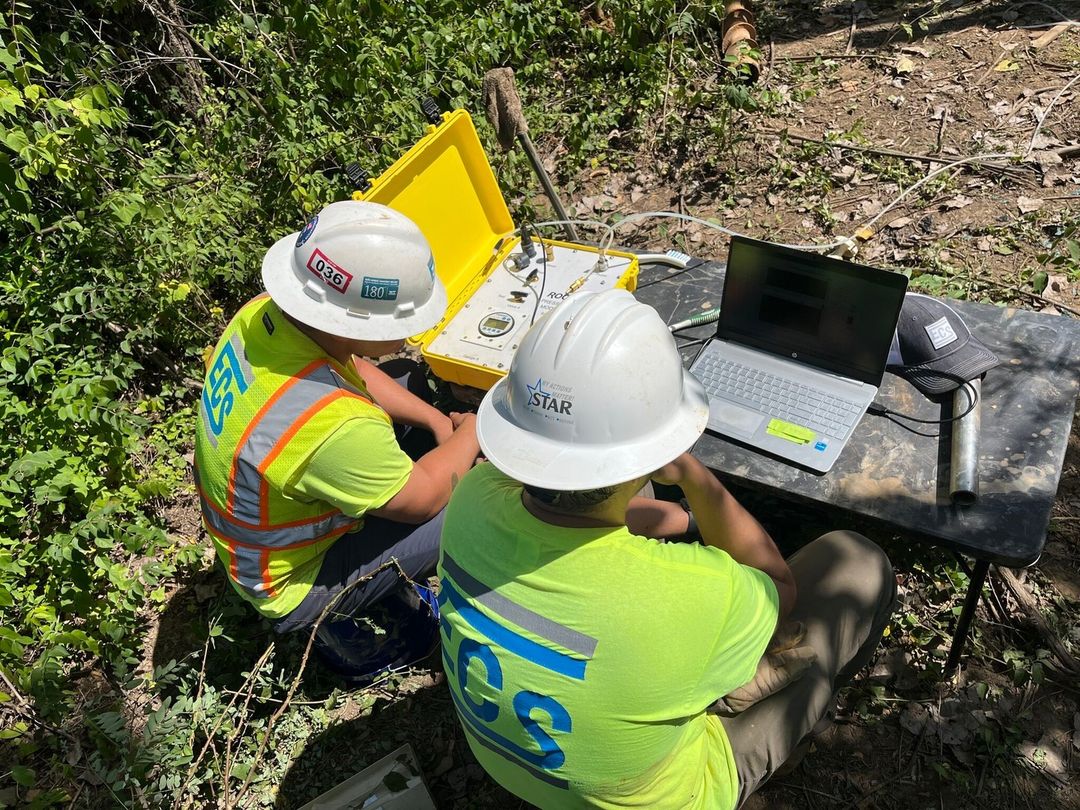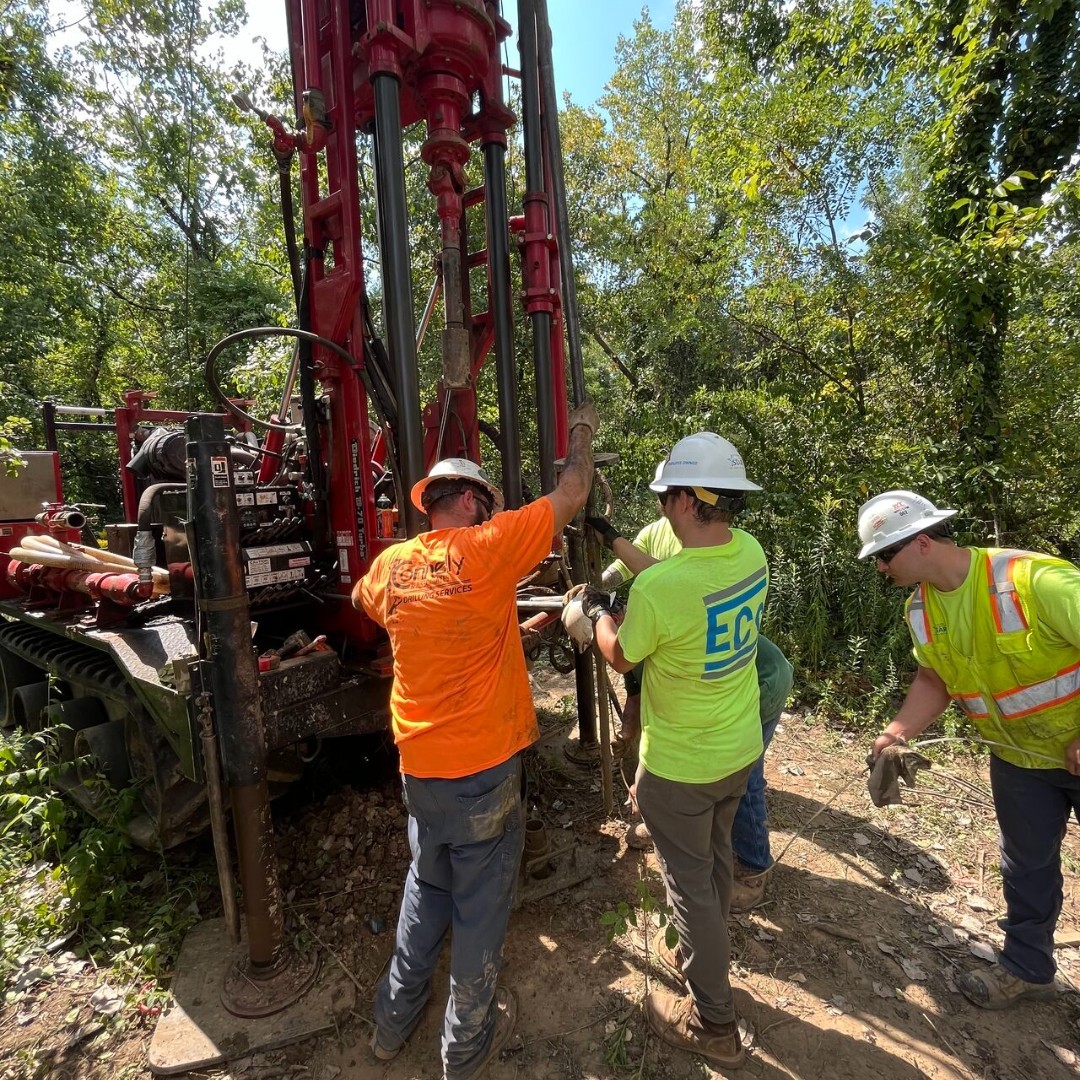| Geotechnical Engineering Service | Geotechnical Engineering Service |
|---|---|
| Engineering Consultation Services (ECS) | Andreyev Engineering, Inc. |
| More information | More information |
 |
 |
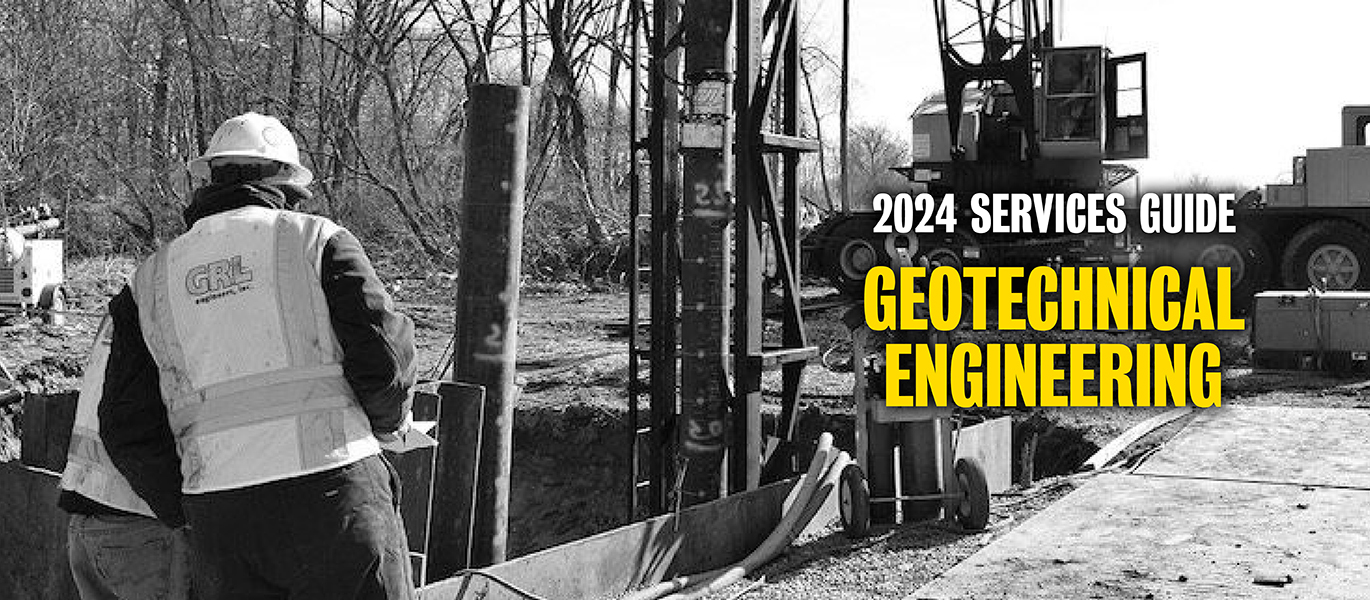
Pile Buck's Top Recommended Service Providers
| Geotechnical Engineering Service | Geotechnical Engineering Service | Geotechnical Engineering Service |
|---|---|---|
| Engineering Consultation Services (ECS) | Andreyev Engineering, Inc. | Company 3 |
| More information | More information | More information |
 |
 |
Geotechnical engineering is a specialized branch of civil engineering that focuses on the interaction between earth materials and construction projects. It plays a crucial role in ensuring the stability and safety of structures such as buildings, bridges, and highways by analyzing soil and rock behavior under various conditions.
Geotechnical engineers are essential from the initial stages of project planning. They assess site conditions through methods like soil sampling and laboratory tests, providing data that influences foundational design decisions. This expertise helps avoid unforeseen issues such as soil instability or landslides, preventing project delays and cost overruns.
Intended for construction companies and government agencies—this guide discusses the essential services provided by geotechnical engineers, the benefits of hiring them, and strategies for selecting the right firm. It also explores common challenges in geotechnical engineering and how collaboration between construction teams and engineers can solve complex issues.
Core Services Offered by Geotechnical Engineers
Geotechnical engineering firms offer a variety of services—including ground improvement techniques, environmental geotechnics, and seismic risk assessment—but their three core services include…
Site Investigation
The first crucial step in construction planning involves comprehensive site investigations. Geotechnical engineers conduct soil sampling and analysis to understand the properties and conditions of the site. This process includes drilling boreholes, extracting soil samples, and performing various laboratory tests to determine soil composition, strength, and other key characteristics. These findings are critical for making informed decisions about the type of foundation required and identifying any potential issues that could impact construction.
Design Services
Geotechnical engineers play a vital role in the design phase of construction projects. They provide expert guidance on foundation design, ensuring that structures are built on a solid and stable base. Their expertise extends to slope stability, where they analyze and design measures to prevent landslides and erosion. In addition, geotechnical engineers address other structural considerations such as retaining walls and earthworks—ensuring that all elements are designed to withstand the environmental forces they will encounter.
Monitoring and Maintenance
The role of geotechnical engineers doesn’t end once construction begins. They offer ongoing monitoring and maintenance services to ensure long-term stability and safety. This includes the installation of instrumentation to monitor ground movement, settlement, and other critical parameters. By continuously assessing these factors, geotechnical engineers can provide early warnings of potential issues and recommend timely interventions to mitigate risks. Their maintenance services help ensure that the structure remains safe and functional throughout its lifespan.
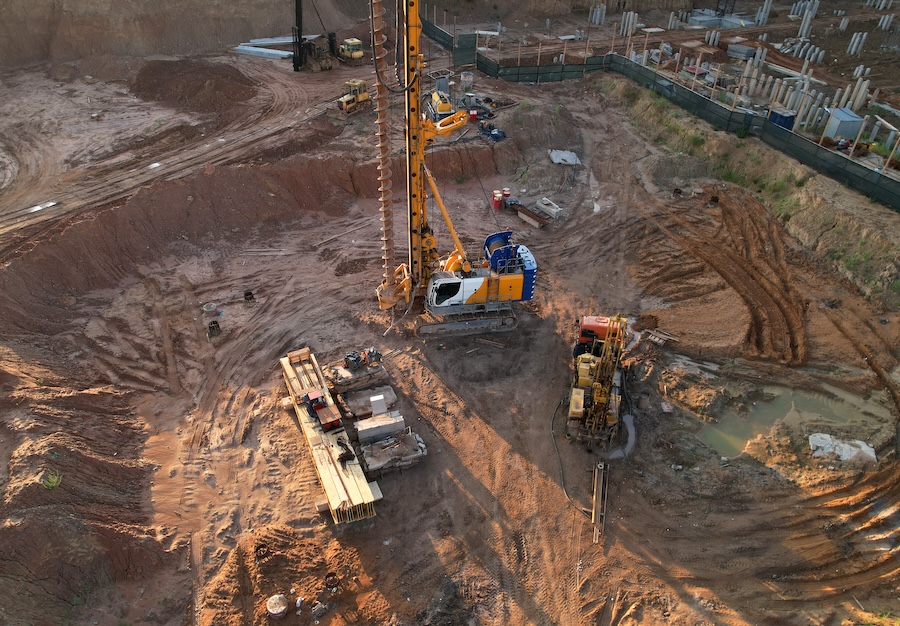
Common Challenges in Geotechnical Engineering
Common challenges in geotechnical engineering applications includes unpredictable soil conditions, groundwater management, and slope stability.
Unpredictable Soil Conditions
Unexpected variations in soil properties, such as loose or expansive soils, can pose significant risks to construction projects. To overcome this—geotechnical engineers conduct thorough site investigations, including multiple boreholes and advanced soil testing, to obtain a detailed understanding of subsurface conditions. They also employ ground improvement techniques, such as soil stabilization and compaction, to enhance soil properties.
Groundwater Management
High groundwater levels and variable water tables can complicate excavation and foundation work, leading to instability and construction delays. To manage this—engineers implement dewatering systems, such as well points and sump pumps, to control groundwater levels during construction. They also use impermeable barriers and drainage systems to manage groundwater in the long term.
Slope Stability
Slopes and embankments are prone to failure due to natural erosion, heavy rainfall, or seismic activity. Geotechnical engineers address this by performing slope stability analysis and designing appropriate reinforcement measures—such as retaining walls, soil nailing, and geosynthetic reinforcement. Regular monitoring and maintenance are also conducted to prevent erosion and instability.
Seismic Hazards
Earthquakes can cause significant ground shaking and soil liquefaction, leading to structural damage. To mitigate these risks, engineers conduct seismic risk assessments and design foundations to withstand seismic forces. They also use ground improvement techniques to reduce the risk of liquefaction and enhance soil stability.
Environmental and Regulatory Constraints
Compliance with environmental regulations and managing the impact of construction on sensitive ecosystems can be challenging. Engineers engage in early consultation with regulatory agencies and environmental experts to ensure compliance. They also design and implement mitigation measures, such as erosion control and habitat restoration, to minimize environmental impact.
Benefits of Hiring Geotechnical Engineers
The benefits of hiring a geotechnical engineering firm include risk management, regulatory compliance, and cost savings.
Risk Management
Hiring geotechnical engineers helps minimize construction risks through early soil assessment and design. By thoroughly analyzing site conditions before construction begins—geotechnical engineers can identify potential issues such as soil instability, high water tables, or weak bearing capacities. This proactive approach allows for the design of appropriate foundations and ground improvement techniques, reducing the likelihood of unforeseen problems during construction.
Regulatory Compliance
Geotechnical engineers play a critical role in ensuring that construction projects comply with local and national building codes, as well as environmental regulations. Their expertise in soil mechanics, foundation design, and site assessment ensures that all aspects of the project meet the required standards. Compliance with regulations not only guarantees the safety and durability of the structure but also helps avoid legal issues and penalties associated with non-compliance.
Cost Savings
Engaging geotechnical engineers can lead to significant cost savings in construction projects. Through thorough site investigations and precise design, geotechnical engineers can prevent costly repairs and modifications that might arise from unforeseen soil conditions or foundation failures. Their expertise allows for optimized foundation designs that use materials and resources efficiently, reducing overall construction costs. In addition, proactive planning and early identification of potential issues help avoid expensive project delays and rework.
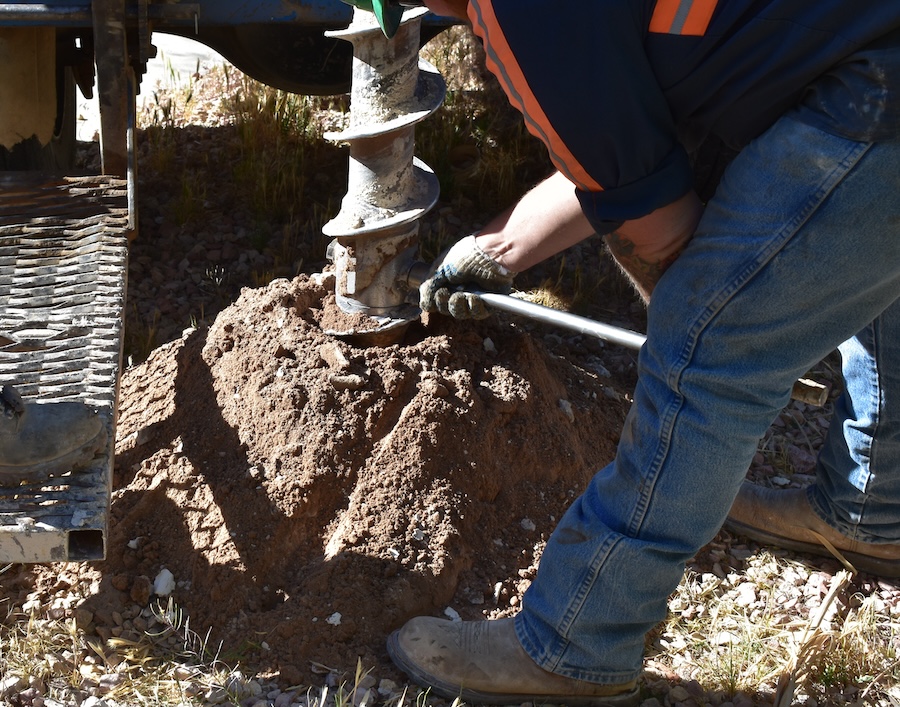
Case Studies
These case studies illustrate the vital role of geotechnical engineering in ensuring the success of construction projects, highlighting best practices and lessons learned…
Case Study 1: High-Rise Building in Urban Area
Project overview: A construction company embarked on building a 50-story high-rise in a densely populated urban area. The site presented challenging soil conditions, including soft clay layers and high groundwater levels.
Geotechnical solutions: Geotechnical engineers conducted extensive soil investigations, including borehole drilling and laboratory testing. They recommended the use of deep pile foundations to reach stable soil strata. In addition, ground improvement techniques such as soil mixing were employed to enhance the bearing capacity of the upper soil layers.
Outcome: The high-rise was successfully constructed, with the foundations providing the necessary stability and load-bearing capacity. The project remained on schedule and within budget, demonstrating the effectiveness of the geotechnical solutions.
Lessons learned: Early and thorough soil investigations are critical for identifying and addressing potential challenges. In addition, implementing advanced ground improvement techniques can significantly enhance soil properties and project outcomes.
Case Study 2: Highway Expansion Project
Project overview: A government agency undertook a major highway expansion project in a region with varied geological conditions, including rocky outcrops and areas prone to landslides.
Geotechnical solutions: Geotechnical engineers performed detailed site assessments, including geophysical surveys and slope stability analyses. They designed reinforced earth structures and retaining walls to stabilize slopes and prevent landslides. In addition, rock blasting techniques were carefully planned and executed to minimize disruption and ensure safety.
Outcome: The highway expansion was completed successfully, with improved safety and increased capacity for traffic. The use of reinforced earth structures and retaining walls ensured long-term slope stability and reduced maintenance requirements.
Lessons learned: Comprehensive geotechnical assessments are essential for large infrastructure projects to identify and mitigate geological hazards. In addition—innovative design solutions, such as reinforced earth structures, can provide effective and long-lasting stability for challenging sites.
Case Study 3: Waterfront Development
Project overview: A construction company developed a waterfront area—including residential buildings, commercial spaces, and recreational facilities. The site was characterized by loose, water-saturated soils and a high water table.
Geotechnical solutions: Geotechnical engineers conducted site investigations and designed a combination of shallow and deep foundations to support various structures. They implemented dewatering techniques to manage the high water table during construction and utilized vibro-compaction to densify the loose soils.
Outcome: The waterfront development was completed without significant delays or issues. The foundations provided adequate support for the structures, and the dewatering and soil densification techniques ensured a stable construction environment.
Lessons learned: Proper management of groundwater and soil conditions is crucial for waterfront developments. In addition, a combination of foundation types and ground improvement methods can address diverse geotechnical challenges effectively.
Selecting the Right Geotechnical Engineering Firm
When selecting a geotechnical engineering firm, it is essential to consider several key criteria to ensure the best fit for your project. Experience is paramount—look for firms with a proven track record in projects similar to yours. Accreditation and certifications from recognized professional bodies indicate a firm’s commitment to industry standards and continuous improvement. Evaluate their previous projects to understand their expertise and the types of challenges they have successfully addressed. In addition, assess their technological capabilities—firms that leverage advanced tools and software for soil analysis, modeling, and monitoring can offer more precise and efficient solutions.
To ensure alignment with your project needs, ask potential geotechnical engineering firms several important questions. Inquire about their experience with projects of similar scope and complexity, and ask for case studies or references from previous clients. Discuss their approach to site investigations and how they handle unexpected soil conditions or other challenges. Understanding their process for ensuring regulatory compliance and managing environmental impacts is also crucial. In addition, ask about their use of technology and how they integrate innovative solutions into their projects. Finally, discuss their communication and collaboration practices to ensure they can work effectively with your construction team and other stakeholders.
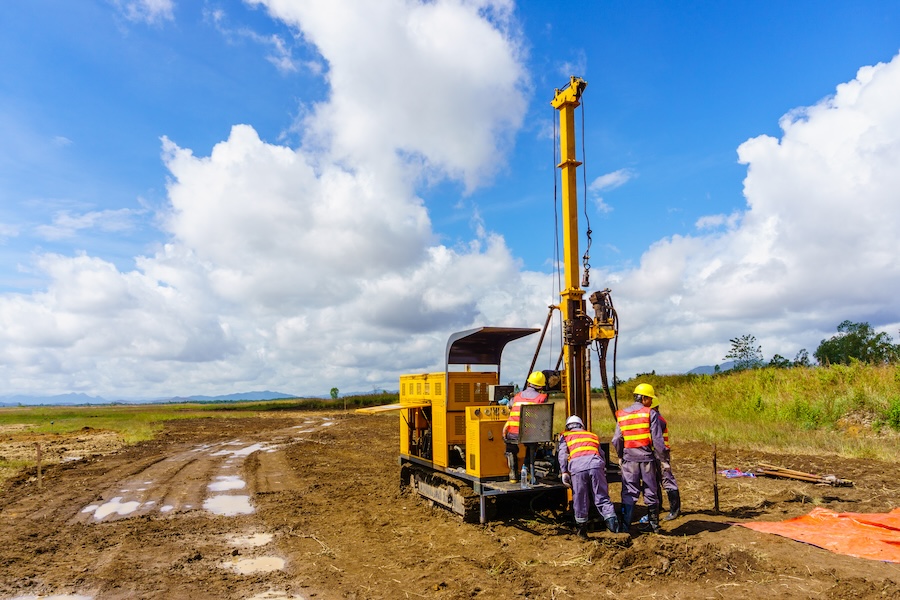
PILE BUCK’S TOP RECOMMENDED GEOTECHNICAL ENGINEERING SERVICE PROVIDERS
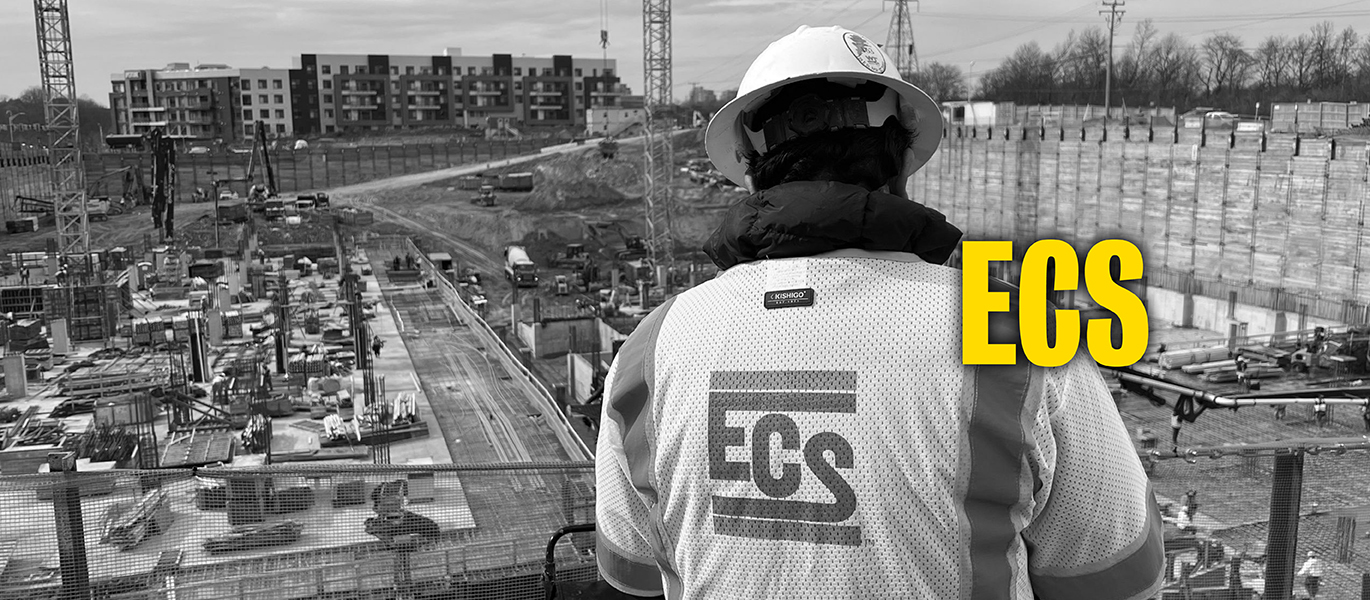
About
Founded in 1988, Engineering Consulting Services (ECS) is a leader in geotechnical, construction materials, environmental and facilities engineering. At that time, our goal was to raise the standards of professional consulting engineering by hiring industry professionals who understood the complexities of building and maintaining modern infrastructures. Our company’s success spans multiple industry sectors. Our steady growth comes from a deep belief in developing the people, systems and expertise required to focus on client needs. Today, with 2,700 employees, ECS has grown to more than 90 offices and testing facilities spread across the Mid-Atlantic, Midwest, Pacific, Southeast and Southwest. ECS is currently ranked #64 in Engineering News-Record’s Top 500 Design Firms (ENR, April 2024), #131 in Engineering News-Record’s Top 200 Environmental Firms (ENR, July 2023) and #2 in Zweig Group Hot Firms (Zweig, June 2023).
Services
Due Diligence/Planning:
- Subsurface Explorations and Assessments
- Groundwater Evaluation
- Aerial Photo Interpretation
- Literature Review and Record
- Foundation Design
- Subgrade Preparation
- Groundwater Mitigation
- Global Stability Analysis
- In-Situ Testing
- Geophysical Surveys
- Geotechnical Lab Testing
- Deep Foundations
- Seismic Analysis
- Karst Evaluations
- Geotechnical Construction Consulting
- Geostructural Design
- Karst Evaluations
Design:
- Pavement Design
- Retaining Wall Design
- Earth Retention Systems
- Ground Improvement Design
- Dewatering Design
- 3rd Party Foundation/Retaining Wall Design Review
Construction:
- Value Engineering
- Load Testing
- Underground Construction
- Temporary Shoring Design
- Instrumentation and Monitoring
- Pre/Post blast surveys
Operations & Maintenance:
- Forensic Engineering
- Failure Analysis
- Remedial Design
- Expert Witness and Litigation Support
- Natural Disaster Evaluation
- Insurance Investigations
Engineering Consulting Services (ECS)
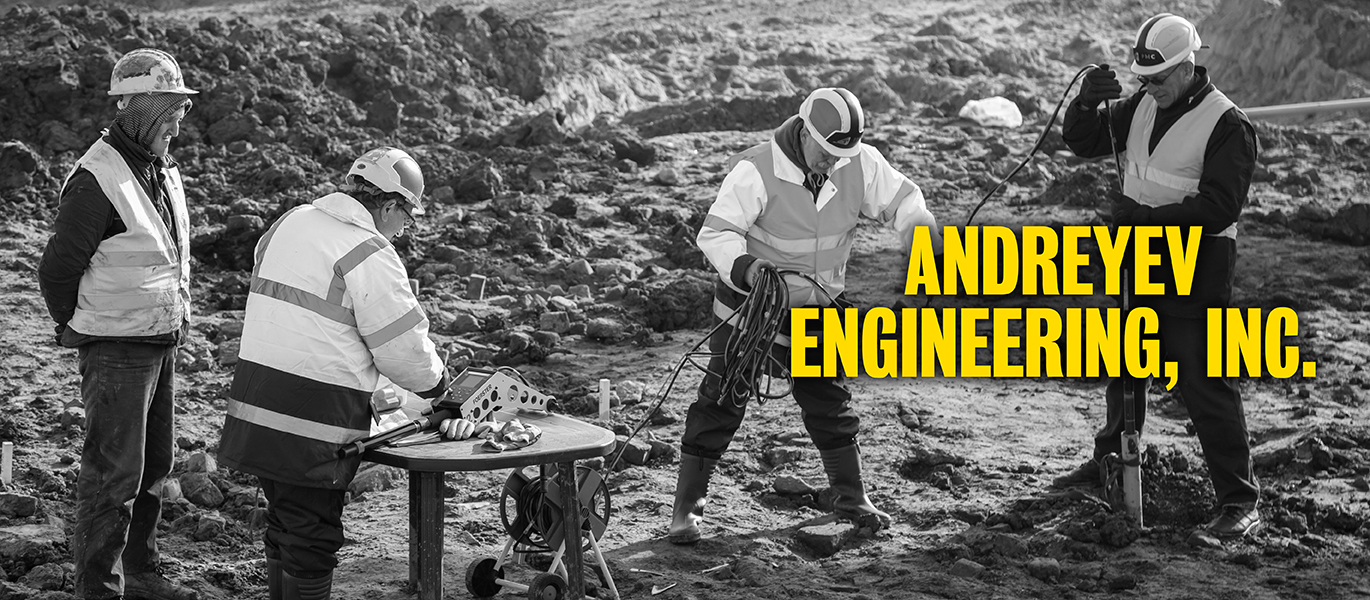
About
Andreyev Engineering is a proven leader for Geotechnical Engineering services in Florida. Geotechnical studies can identify problems with soil conditions and offer engineering solutions to be incorporated with the design of the project. Proper characterization of the subsurface soil and groundwater conditions are an integral part of any successful construction project. In general, Geotechnical Engineering services are conducted in three phases:
- Field Testing Phase (Exploration and Field Data Collection)
- Laboratory Testing Phase (Classification/Characterization)
- Engineering Evaluation, Analysis and Reporting Phase
- All three phases of our geotechnical services are conducted by experienced professional staff under the direction of a registered professional engineer.
Services
- Land / Water Drilling
- Foundation Analyses
- Sinkhole Investigations
- Sinkhole Grouting
- Roadway Soil Testing
- Site Suitability Investigations
- Pile Inspection / Testing
- Geotechnical Instrumentation
- Earth Retaining Structures
- Pavement Design / Evaluations
- Muck Deposit Probing
- Seasonal High Groundwater Determination

